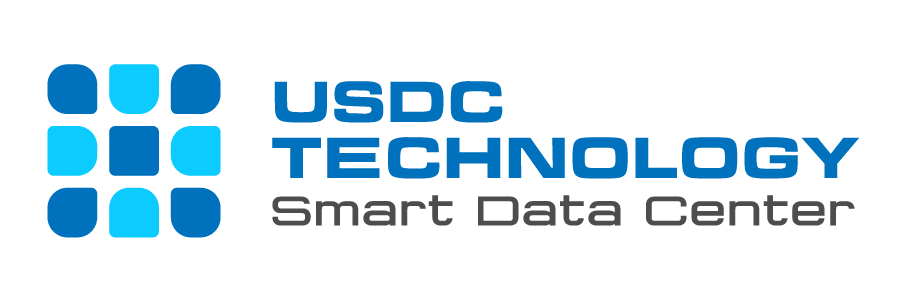Vietnam’s data center market is witnessing transformative growth, projected to expand from USD 2,269.39 million in 2023 to USD 4,862.66 million by 2032, at a CAGR of 8.31%. As the country accelerates its digital transformation, this rapidly evolving sector offers a wealth of opportunities for data center investors and industry experts. Key players driving this growth include FPT Corporation, Viettel IDC, CMC Telecom, VNG Cloud, VNPT, DTS, HTC, and USDC Technology, all playing a vital role in shaping Vietnam’s data center landscape.
Market Catalysts – Key Drivers of Growth
Digitalization Across Industries
The Vietnamese economy is undergoing a profound digital transformation, with sectors like banking, healthcare, retail, and manufacturing rapidly adopting digital platforms. The shift to online banking, telemedicine, and e-commerce is driving the demand for secure, scalable, and efficient data center infrastructure. As businesses digitalize their operations, the need for colocation, cloud services, and data storage solutions is surging, creating attractive investment opportunities for data center operators.Financial services and e-commerce have been key beneficiaries of this digital shift. Major Vietnamese banks are experiencing exponential growth in digital transactions, demanding high-capacity data centers to manage customer data securely. Retailers, meanwhile, are leaning heavily into e-commerce, further driving demand for localized data centers that can offer low-latency services. Investors focusing on expanding digital infrastructure to support these growing industries will find significant potential in the Vietnamese market.
Cloud Adoption and IoT Deployment
Cloud computing is becoming increasingly integral to businesses across Vietnam. Small and medium-sized enterprises (SMEs), which account for a significant portion of Vietnam’s economy, are migrating to cloud platforms to optimize costs and increase operational efficiency. This trend is driving demand for cloud service providers and the expansion of data center infrastructure to accommodate cloud workloads.Moreover, IoT is gaining momentum in smart city initiatives, notably in major urban centers like Ho Chi Minh City and Hanoi. The deployment of IoT devices is producing vast amounts of data that require real-time processing and storage, placing immense pressure on existing data center capacities. Data center operators equipped with edge computing capabilities are well-positioned to meet the demand for low-latency solutions in urban hubs. For investors, this convergence of cloud and IoT presents opportunities to develop hyperscale and edge data centers that can support high volumes of data processing in real-time.
Expanding Internet Penetration and Data Traffic
Vietnam’s rapidly growing internet penetration is a significant driver of data consumption. With over 70% of the population now online, the country is witnessing a massive increase in mobile internet usage and digital services like video streaming, e-learning, and online gaming. This surge in data traffic is putting pressure on Vietnam’s telecommunications infrastructure, pushing telecom operators to invest in expanding their data center capacities.As the rollout of 5G networks progresses, this demand will only intensify. Data-intensive applications, such as virtual reality (VR), augmented reality (AR), and 4K streaming, will further accelerate the need for robust, scalable data centers. Investors who focus on enhancing network connectivity and infrastructure to handle these demands will be at the forefront of Vietnam’s digital growth. Telecom operators and data center providers will be increasingly reliant on hyperscale facilities to manage and store vast amounts of data, making the expansion of data center capacities critical to maintaining service reliability and performance.
Regulatory and Government Support
Government Initiatives and Incentives
The Vietnamese government has embraced digitalization through a series of strategic initiatives aimed at building a robust digital economy. The National Digital Transformation Program, which targets digital development across all sectors, is fueling demand for data storage, cloud services, and smart city infrastructure. These policies are encouraging both local and foreign investment in data center development, with favorable tax incentives and streamlined regulatory frameworks aimed at easing the path for data center operators.For data center investors, the government’s push toward smart cities and digital governance creates an attractive market ripe for long-term investment. Infrastructure development, including energy supply and cooling solutions, is a key area where investors can contribute, ensuring that new data centers can meet both capacity and sustainability targets.
Data Sovereignty and Localization Laws
Data sovereignty is becoming a critical issue in Vietnam as the government enforces stricter data localization regulations. Companies operating in sensitive sectors, such as banking and telecommunications, are required to store certain types of data within the country. This regulatory shift is fueling the need for local data centers that can meet compliance requirements while providing secure and reliable services.Investors focused on building local data centers are well-positioned to take advantage of this trend. As compliance with data sovereignty regulations becomes a business imperative, data center providers offering enhanced security features and localized services will be in high demand. This presents an opportunity to partner with companies in regulated industries, such as finance and healthcare, which are required to ensure the security and compliance of their data storage solutions.
Sustainability as a Strategic Imperative
The Push for Green Data Centers
Sustainability has become a critical focus in the global data center industry, and Vietnam is no exception. Rising energy costs, environmental regulations, and growing awareness of climate change are driving data center operators to adopt energy-efficient technologies and reduce their carbon footprint. Green data centers, which leverage renewable energy sources and advanced cooling systems, are becoming the preferred choice for companies seeking to minimize their environmental impact.For investors, sustainability is not just a regulatory requirement but also a competitive advantage. Data center operators that prioritize energy efficiency and sustainability are better positioned to attract environmentally-conscious clients, particularly those in industries with stringent sustainability goals. The development of green data centers, which can significantly reduce operational costs through energy savings, is an area where investors can make a meaningful impact while aligning with global environmental trends.
Energy-Efficient Technologies and Infrastructure
Vietnam’s tropical climate poses unique challenges for data center operations, particularly in terms of cooling requirements. To maintain optimal performance while reducing energy consumption, data center operators are turning to innovative cooling solutions, such as liquid cooling and free-air cooling, which reduce the need for energy-intensive air conditioning. Additionally, the use of AI and machine learning for energy optimization is gaining traction, enabling data centers to monitor and adjust energy usage in real-time.Investors in energy-efficient infrastructure can drive the development of data centers that prioritize sustainability without compromising performance. The integration of AI-driven energy management systems and renewable energy sources, such as solar and wind power, can significantly enhance a data center’s operational efficiency, making it more attractive to both clients and regulatory bodies.
Key Challenges and Strategic Considerations
High Capital Expenditure and Infrastructure Limitations
Building advanced data centers, particularly hyperscale and edge facilities, requires substantial capital investment. The high costs associated with land acquisition, construction, energy supply, and cooling systems can be prohibitive for new entrants. However, Vietnam’s growing digital economy and government support for infrastructure development present opportunities for investors willing to make long-term commitments.Additionally, power reliability remains a challenge in some regions, which can increase operational risks and costs. Investors must carefully evaluate the infrastructure and energy supply in targeted areas, ensuring that new data centers are equipped with redundant power systems and advanced cooling solutions to mitigate operational risks.
Navigating Regulatory and Compliance Hurdles
Vietnam’s regulatory landscape is evolving as the government seeks to balance data privacy with digital growth. Data center investors and operators must stay ahead of these regulations, particularly concerning data sovereignty and cybersecurity. Compliance with local laws, particularly in heavily regulated sectors such as finance and healthcare, will be critical for success in Vietnam’s data center market.Investors should consider forming partnerships with local experts and regulatory bodies to ensure compliance and mitigate risks. Strategic alliances with local telecom operators, cloud providers, and government agencies can provide valuable insights and support in navigating the complex regulatory environment.
A Market Poised for Long-Term Growth
Vietnam’s data center market is primed for significant expansion, driven by digital transformation, cloud adoption, and favorable government policies. Investors and experts with a focus on scalability, sustainability, and compliance will find ample opportunities to contribute to the development of this dynamic sector. As key players, including USDC Technology, continue to invest in cutting-edge infrastructure, the market is well-positioned for sustained growth, making Vietnam an attractive destination for data center investment in Southeast Asia.
Source: Credence Research
Media Contact
Universal Smart Data Center Technology
Phone: (+84) 28 73080708
Email: info@usdc.vn


